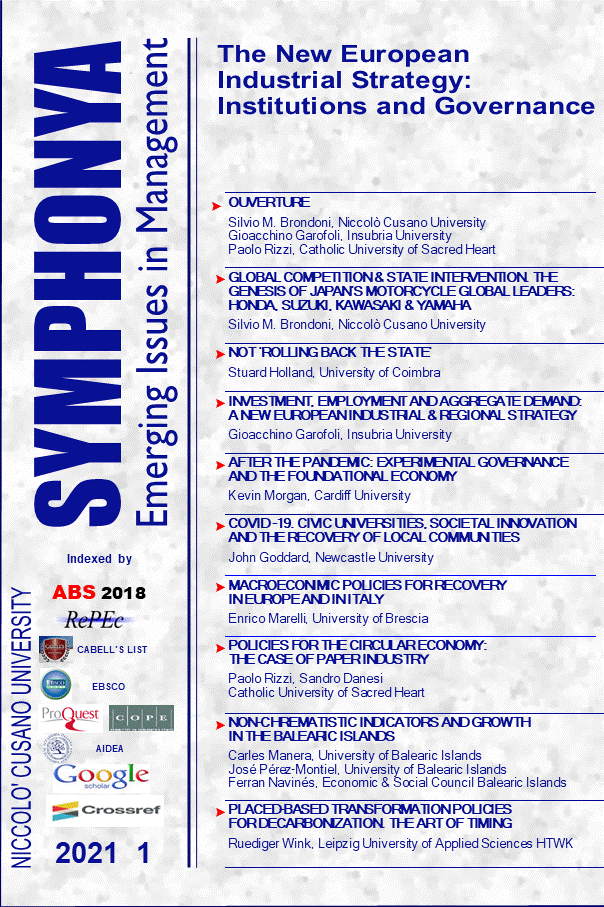Global Competition & State Intervention. The Genesis of Japan’s Motorcycle Global Leaders: Honda, Suzuki, Kawasaki &Yamaha
DOI:
https://doi.org/10.4468/2021.1.02brondoniKeywords:
Global Competition, Oversize Economy, State Intervention, Capitalism, Socialism, Mixed Economy, Motorcycle Industry, MITI, JETRO, Honda, Suzuki, Kawasaki, YamahaAbstract
Across Europe, businesses and policy makers are now worried about the future industries dominated by U.S. and Chinese companies. Since the financial and economic global crisis in 2007, western industrialized countries experienced a return to stronger state interventions in the business. States, which had previously been reluctant to intervene, implemented intervenes for individual companies or industrial measures for whole sectors. Moreover, the pandemic has driven Asian countries to double down on the tradition of state intervention. The specific causes of the coronavirus global recession, however, impose a radical and targeted solution. Governments should enter in key-sectors and cover directly wages and maintenance costs for critical businesses facing shutdown. In this context of Government direct involvement in global business, it is very useful to remember the lesson from the genesis of Japan’s motorcycle global leaders: Honda, Suzuki, Kawasaki and Yamaha.
Downloads
Published
How to Cite
Issue
Section
License
Copyright (c) 2021 Symphonya. Emerging Issues in Management

This work is licensed under a Creative Commons Attribution 4.0 International License.
The authors retain all rights to the original work without any restrictions.
License for Published Contents

You are free to copy, distribute and transmit the work, and to adapt the work. You must attribute the work in the manner specified by the author or licensor (but not in any way that suggests that they endorse you or your use of the work).
License for Metadata

Symphonya published articles metadata are dedicated to the public domain by waiving all publisher's rights to the work worldwide under copyright law, including all related and neighboring rights, to the extent allowed by law.
You can copy, modify, distribute and perform the work, even for commercial purposes, all without asking permission.



